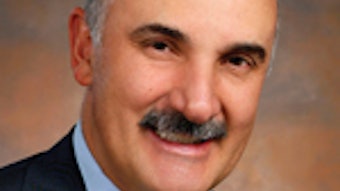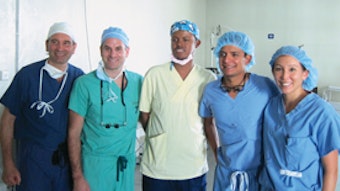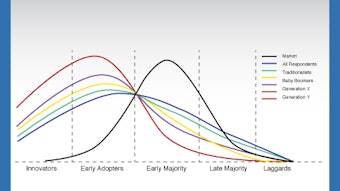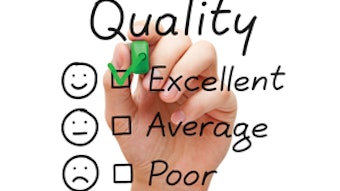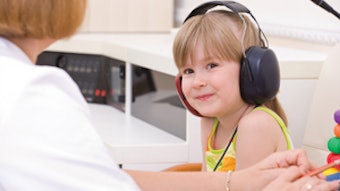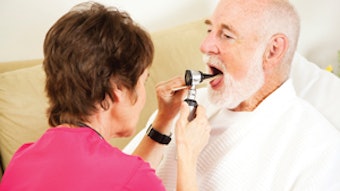Educate Your Voice
Norman D. Hogikyan, MD Professor and Director Vocal Health Center; Department of Otolaryngology-Head and Neck Surgery, University of Michigan The theme for our World Voice Day 2014 is Educate Your Voice. The word “educate” is typically associated with teaching or training of some sort, but how can this apply to voice? One way to educate your voice is to learn how voice is produced. The sound-producing structures in your voice box (larynx) are the vocal folds (also called vocal cords). These remarkable little parts of your anatomy vibrate many times a second to produce sounds that are then shaped by other portions of the throat, mouth, and nose into what we know as speech or song. Throughout the AAO-HNS World Voice Day website, you can find information and links to facilitate your voice education. What about the sound of your voice—is there a way to educate how your voice sounds? Another way to put that question is, “Can you learn to make your voice sound better?” The answer is a resounding yes! There is no doubt that voice quality impacts effectiveness of communication and how others see us. Even in a contemporary society that is actively engaged with social media, texting, and tweeting, first impressions may be based purely upon our voice. What do people think when they hear you? Make a recording of your own voice and listen to it by yourself or with colleagues and friends. What does it tell you? If you don’t like what you hear, you may want to be evaluated at a voice care center. Vocal health specialists can determine if there is anything wrong with your larynx itself, or if you are just not producing your voice optimally. Treatment can be tailored to your specific voice issues and results can be remarkable. This year’s World Voice Day theme is an important reminder of how vital the voice is to educators of all types, and to their students. Whether the classroom is traditional or virtual, live or recorded, it is difficult to imagine truly effective exchanges of information and ideas without voice. Teachers are perhaps the finest example of speaking vocal professionals, and even a minor voice problem can have a large influence upon the classroom. It is important for teachers, other occupational voice users, and for all of us that we take steps to maintain our vocal health. Make sure your vocal health education includes memorizing these tips: Don’t fail your voice by smoking. Learn to keep yourself well hydrated. Water is the best. Don’t scream or shout your way into vocal detention. Use a microphone if you need to project your voice. Take a vocal recess if you have laryngitis. Resting your voice will help it to heal. Be smart and get evaluated by an otolaryngologist (ear, nose, and throat physician) if you have persistent hoarseness.
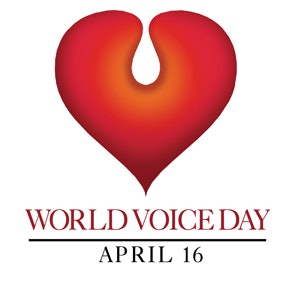
Professor and Director Vocal Health Center; Department of Otolaryngology-Head and Neck Surgery, University of Michigan
The theme for our World Voice Day 2014 is Educate Your Voice. The word “educate” is typically associated with teaching or training of some sort, but how can this apply to voice?
One way to educate your voice is to learn how voice is produced. The sound-producing structures in your voice box (larynx) are the vocal folds (also called vocal cords). These remarkable little parts of your anatomy vibrate many times a second to produce sounds that are then shaped by other portions of the throat, mouth, and nose into what we know as speech or song. Throughout the AAO-HNS World Voice Day website, you can find information and links to facilitate your voice education.
What about the sound of your voice—is there a way to educate how your voice sounds? Another way to put that question is, “Can you learn to make your voice sound better?” The answer is a resounding yes! There is no doubt that voice quality impacts effectiveness of communication and how others see us. Even in a contemporary society that is actively engaged with social media, texting, and tweeting, first impressions may be based purely upon our voice. What do people think when they hear you? Make a recording of your own voice and listen to it by yourself or with colleagues and friends. What does it tell you? If you don’t like what you hear, you may want to be evaluated at a voice care center. Vocal health specialists can determine if there is anything wrong with your larynx itself, or if you are just not producing your voice optimally. Treatment can be tailored to your specific voice issues and results can be remarkable.

Make sure your vocal health education includes memorizing these tips:
- Don’t fail your voice by smoking.
- Learn to keep yourself well hydrated. Water is the best.
- Don’t scream or shout your way into vocal detention. Use a microphone if you need to project your voice.
- Take a vocal recess if you have laryngitis. Resting your voice will help it to heal.
- Be smart and get evaluated by an otolaryngologist (ear, nose, and throat physician) if you have persistent hoarseness.

